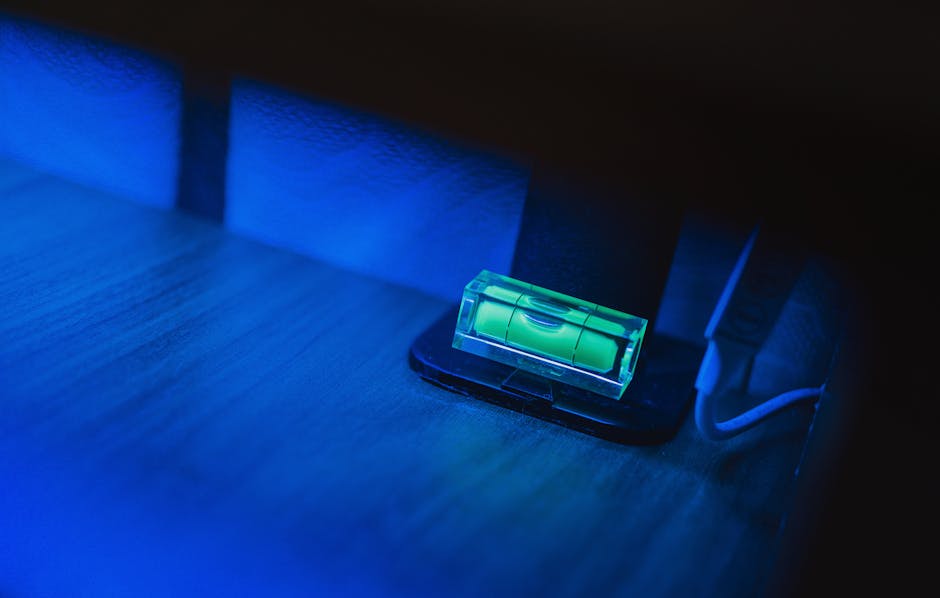Unlocking the Secrets of Polygraph Tests: Beyond Lie Detection
Dive into the intricate world of polygraph tests, from lie detection in forensics to employment screening, and unravel its secrets!
Dive into the intricate world of polygraph tests, from lie detection in forensics to employment screening, and unravel its secrets!

How State Regulations Shape the Future of Polygraphy In recent years, the polygraph industry has experienced significant transformations, driven largely by changes in state regulations. These regulations have a profound impact on how polygraphy is practiced, perceived, and utilized across various sectors. From law enforcement to corporate environments, understanding these regulatory frameworks is crucial for […]

Analyzing Physiological Responses: Techniques and Tools In the realm of human physiology and psychology, understanding the body’s responses to various stimuli is crucial. Whether for medical diagnostics, psychological research, or enhancing human-computer interaction, the analysis of physiological responses provides valuable insights. This comprehensive guide delves into the techniques and tools used to analyze physiological responses, […]

The Role of Polygraphs in Cybersecurity Investigations As the digital landscape evolves, so does the complexity and volume of cyber threats. Cybersecurity has become a paramount concern for businesses and governments worldwide. One surprising tool that has found its way into the realm of cybersecurity investigations is the polygraph, commonly known as the lie detector […]

Understanding the Ethical Framework for Polygraph Licensing The polygraph, commonly known as a lie detector, has been a subject of intrigue and skepticism. Its use spans various fields, from criminal investigations to employment screenings. However, the ethical considerations and licensing requirements governing its use are often overlooked. This blog post delves into the ethical framework […]

How Accurate Standards Improve the Validity of PCSOT Evaluations In the realm of post-conviction sexual offender testing (PCSOT), accuracy is not just a preference—it is a necessity. Implementing accurate standards in PCSOT evaluations enhances their validity, ensuring that assessments are trustworthy and beneficial for all stakeholders involved. But what exactly does this mean? And how […]
The Evolution of Pre-Employment Polygraph Testing Pre-employment polygraph testing has been a controversial and evolving topic in the field of human resources and recruitment. As organizations strive to maintain integrity and security, the demand for reliable employee screening processes has grown. This blog post delves into the history, current trends, and future prospects of polygraph […]
How State Regulations Influence Polygraph Examiner Ethics The polygraph test, commonly known as a lie detector test, has sparked debates regarding its accuracy and ethical implications. Polygraph examiners play a crucial role in conducting these tests, and their ethical conduct is significantly influenced by state regulations. Understanding how these regulations shape the ethical landscape of […]
The Role of Physiological Responses in Modern Neuroscience In the ever-evolving field of neuroscience, understanding the complex interactions between the brain and body is crucial. Physiological responses—such as heart rate, respiration, and galvanic skin response—play a pivotal role in decoding how our brains process information, emotions, and stimuli. This blog post delves into the significance […]
Ethical Considerations in Polygraphy for Domestic Violence Cases Polygraphy, commonly known as lie detection, is a tool that has been both lauded and criticized in various legal contexts. When it comes to domestic violence cases, the ethical implications of using polygraph tests are particularly profound. This blog post delves into these ethical considerations, exploring the […]
How Accurate Standards Affect the Credibility of Polygraph Results In an era where truth can be elusive, the polygraph emerges as a tool to uncover deception. Yet, its credibility often comes under scrutiny. How accurate are polygraph results, and what role do standards play in enhancing their reliability? This blog post delves into these questions, […]
The Psychological Impact of Lie Detector Tests Lie detector tests, also known as polygraph tests, have long been a subject of fascination and controversy. Used in various fields from law enforcement to employment screening, these tests are designed to measure physiological responses to questions, under the assumption that deceptive answers will produce distinctive physiological reactions. […]
Preparing for a Polygraph Test: Dos and Don’ts Polygraph tests, commonly known as lie detector tests, are used in various scenarios, from pre-employment screenings to criminal investigations. While these tests are not foolproof, they can be a source of anxiety for many. Preparing adequately can help reduce stress and ensure the most accurate results. In […]
PCSOT Programs: Best Practices for Implementation In today’s ever-evolving world of criminal justice and rehabilitation, PCSOT (Post-Conviction Sex Offender Treatment) programs have become a crucial tool for managing and rehabilitating sex offenders. The implementation of these programs is critical to their success, ensuring they are both effective and sustainable. This blog post delves into the […]
The Role of State Regulations in Ensuring Polygraph Examiner Competence In today’s world, where truth verification is crucial for various professional and personal decisions, polygraph examinations have become a significant tool. However, the credibility of these tests largely depends on the competence of the examiner. This is where state regulations come into play. They are […]
Understanding the Components of a Polygraph Examination Polygraph examinations, commonly known as lie detector tests, have long been a subject of intrigue and debate. Whether you’re considering taking a polygraph test, or simply curious about how they work, understanding the components of a polygraph examination is crucial. This comprehensive guide will delve into the intricacies […]
How Physiological Responses Are Used Beyond Polygraphy In today’s rapidly evolving world, the understanding of physiological responses has expanded far beyond the confines of traditional polygraphy. While the polygraph, or lie detector test, has been a well-known application, recent advancements in technology and research have opened new avenues for utilizing physiological responses in various fields. […]
Ethical Practices in Administering Polygraph Tests to Minors In recent years, the use of polygraph tests has sparked numerous debates, particularly when it comes to administering them to minors. These tests, commonly referred to as lie detector tests, are often utilized in criminal investigations, employment screenings, and various other settings. However, when it comes to […]
How Deception Detection Technology Has Evolved Over the Decades In an era where truth and transparency are increasingly valued, deception detection technology has become a crucial tool across various spheres, from law enforcement to corporate environments. This technology has undergone significant evolution over the decades, adapting to the complexities of modern-day communication and deception. In […]
The Role of Accurate Standards in Polygraph Examiner Training The polygraph examination, often referred to as a “lie detector test,” has long been a tool used in law enforcement, security, and even employment screenings. However, the effectiveness of these tests largely hinges on the expertise of the examiner. Thus, the training of polygraph examiners must […]
The Science of Physiological Responses in Lie Detection In a world where honesty is often a rare commodity, the quest to unmask deceit has become more critical than ever. Lie detection, a captivating intersection of psychology, physiology, and technology, aims to unveil the truth by analyzing physiological responses. This blog post delves into the science […]
How PCSOT Programs Promote Ethical Practices In today’s complex world, maintaining ethical standards is crucial across various sectors, especially those involving psychological and therapeutic services. The Post-Conviction Sex Offender Treatment (PCSOT) programs play a vital role in promoting these ethical practices, ensuring that both practitioners and participants adhere to stringent guidelines that prioritize safety, integrity, […]
The Role of State Regulations in Shaping Polygraph Practices Polygraphs, commonly known as lie detectors, have long been a subject of debate in both legal and employment contexts. With their ability to measure physiological responses, polygraphs aim to determine the truthfulness of a person’s statements. However, the use of polygraphs is not uniformly accepted across […]

Exploring the Ethical Implications of Deception Detection Technology In an era where technology is rapidly evolving, deception detection tools have emerged as a powerful ally in fields such as security, law enforcement, and even corporate hiring. While these technologies promise increased efficiency and accuracy compared to traditional methods, they also raise significant ethical concerns. This […]

The Role of Accurate Standards in Enhancing Polygraph Accuracy Polygraphs, commonly known as lie detectors, have long been a topic of debate regarding their accuracy and reliability. Despite their controversial nature, polygraphs are still widely used in various fields, including law enforcement, security clearance processes, and employment screenings. The key to maximizing their effectiveness lies […]
